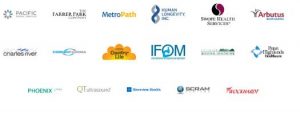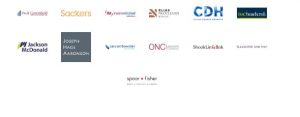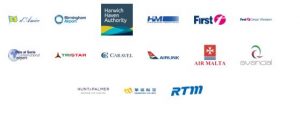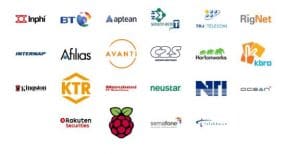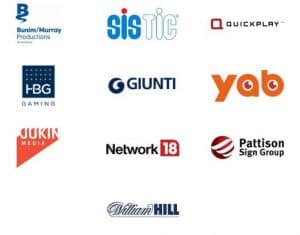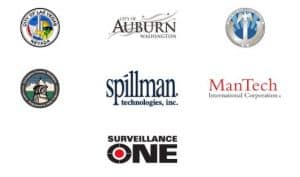Cybersecurity threats in 2020 in the EU
Cybersecurity is a term coined to protect Information security systems from unathorised access and to ensure the confidentiality, integrity and availability of data. The process involves preventing, detecting, responding to and recovering from cyber incidents. EU policy declares that cybersecurity covers any unlawful activity involving the use of digital technologies in cyberspace which include cybercrimes such as, but not limited to:
- Launching computer phishing attacks.
- Malware.
- Non – cash payment fraud.
Such attacks can distinguish between systems and content, they can also be sources of misinformation to influence online debate and suspected electoral interference.
Cybersecurity threats can be classified according to what they do to data, disclosure, modification, destruction or denied access. As the attacks to information increase in sophistication, our defence mechanisms become less effective. Malware (malicious software) is designed to harm devices or networks. It can include viruses, trojans, ransomware, worms, adware and spyware.
Ransomware encrypts data, preventing users from accessing their files until a ransom is paid, typically in cryptocurrency, or an action is carried out. According to Europol, ransomware attacks dominate across the board, and the number of ransomware types has exploded over the past few years. Distributed Denial of Service (DDoS) attacks, which make services or resources unavailable by flooding them with more requests than they can handle, are also on the rise, with one third of organisations facing this type of attack, as of the latest EU report written in 2017.
Users can be manipulated into unwittingly performing an action or disclosing confidential information. This can be used for data theft or cyberespionage, and is known as social engineering. There are different ways to achieve this, but a common method is phishing, where emails appearing to come from trusted sources trick users into revealing information or clicking on links that will infect devices with downloaded malware. More than half of Member States in the EU reported investigations into network attacks according to the latest EU findings.
Perhaps the most nefarious of threat types are advanced persistent threats (APTs). These are sophisticated attackers engaged in long-term monitoring and stealing of data, and sometimes harbouring destructive goals as well. The aim here is to stay under the radar without detection for as long as possible. APTs are often state-linked and targeted at especially sensitive sectors like technology, defence, and critical infrastructure. Cyberespionage is said to account for at least one-quarter of all cyber incidents and the majority of costs.
The impact of being poorly prepared for a cyber attack is difficult to analyse due to the lack of reliable data. However, The impact of cybercrime rose by five times from 2013 to 2017 and according to the latest cyber crime report in the EU, cyber insurance premiums are forecasted to grow from €3 billion in 2018 to €8.9 billion in 2020, which reflects this trend. A DDoS attack can cost as little as €15 a month to carry out, yet the losses suffered by the targeted business, including reputational damage, are considerably higher, in many cases into the high millions.
The global Wannacry ransomware and NotPetya wiper malware attacks in 2017 together affected more than 320 000 victims in around 150 countries. These incidents led to something of a global awakening of the threat posed by cyber-attacks, creating fresh momentum to bring cybersecurity into mainstream policy thinking. In addition, 86 % of EU citizens now believe the risk of falling victim to cybercrime is increasing.
“Regardless of how well-secured a network may appear to be, the hacker almost always finds a way in.” – Alan Wade, Former CIO at the Central Intelligence Agency
In this new era of threat, criminals have increasingly turned online to upscale their campaigns and outsmart their victims. It is a known fact that every major government has a dedicated cyber warfare programme, not only tasked to defend but also to conduct offensive operations endorsed by the likes of U.S government and the EU. As companies try to get their heads around the threath that is posed and justify investment, they are inclined to think of the cyber world in terms of new innovations, shared efficiencies and business growth but in many places world wide, the internet is perceived as a tool to advance political and economic interests. In this fast moving, ever evolving world, companies are trying to get to grip with reality and they must consider cyber security to be both a human and technological issue. Humans are a part of the equation as human behaviour is unpredictable and hard to control. In the majority of instances, organizations lack the understanding of the normal patterns of their own employees, let alone that of suppliers and third-party partners. Without this knowledge, the early indicators of threat are lost and not be discovered until a problem arises and money is lost.
The approach has to change.
In cyber security everything operates in real time, there are no predication mechanisms. The attacks of yesterday cannot foresee the attacks of tomorrow, leaving organisations unable to accurately assess how exposed their networks are, if they are not using the right tools. At Newtech we offer the best solutions in the market to prevent and detect such attacks. Which includes Darktrace, who are world leading in the autonomous response, utilising mathematics and AI to detect activity that is abnormal both internally and externally. Business leaders must demand change at both a human and technological level, to deliver a strategy that is just as adaptive as the threat is. While organisations will never be fully unhackable, cyber security is one of the best examples where artificial intelligence has proven its real-world impact in delivering much-needed change to our ability to fight cyber criminals. Darktrace power is not to second – guess the imagined threat but to fully learn patterns of normality within the whole context of your organisation to catch the quiet, unexpected threat lurking inside your systems. This is why Darktrace is trusted by some of the largest organisations in the world in a number of industries ranging from these Industries and including these internationally acclaimed clients:
- Financial Services
- Manufacturing and Supply
- Healthcare and Pharma
- Education
- Government and Defense
- Retail & e-commerce
- Legal & HR
- Energy & Utilities
- Transportation
- Technology & Telecoms
- Media & Entertainment
- Nonprofit
Darktrace is a Unique System, the first technology capable of the self-learning human immune system. It is the first technology platform capable of learning ‘self’ across the digital business and identifying what is truly dangerous or malicious.
Powered by award winning AI, the enterprise immune system learns what constitutes normal activity for any business or network, identifying outliers that do not fit the evolving ‘pattern of life’, and like a digital antibody, instantly neutralizing the threat before it has time to cause damage. The key benefits of Darktrace Enterprise include:
- Learning on the Job – continually learns and adapts its understanding of ‘normal’ in light of new evidence.
- Detects in Real time and Plays Back – catches threats before they do damage and allows for retrospective analysis as well.
- Understands your entire business – works across on-premise network, data centre, virtualized environment, cloud SaaS and Industrial control systems.
- Installs in One Hour – No lengthy set-up or manual tuning, Darktrace enterprise installs in one hour.
- Customizable and Backward Compatible – Designed to fit within you existing security processes. You can also customize Darktrace’s models to suit your corporate policies.
If you’re a Maltese based company and interested in the solution, inclusive of full support from our local technical team send an email to solutions@newtech.mt
